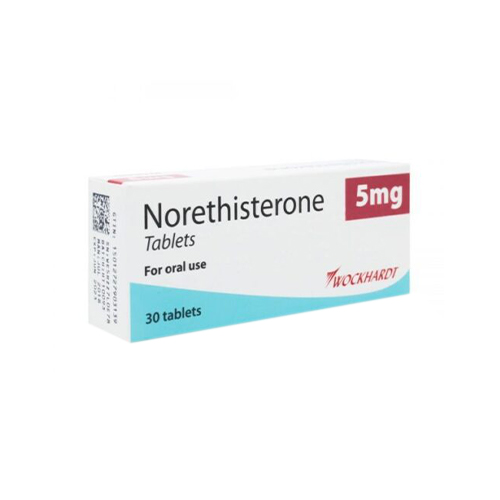- Delay periods for up to 3 weeks
- Progestogen based
- Easy to take
Norethisterone
Norethisterone tablets are a type of progesterone, it has many uses including treating and managing heavy, painful and irregular periods as well as delaying the onset of periods.
What is Norethisterone?
Norethisterone Tablets has many uses, it is also referred to as the period delay tablet. It has the brand name Utovlan.
- Delay periods
- Heavy periods
- Painful periods
- Irregular periods or periods that are more frequent than normal
- Premenstrual tension (PMT)
- Endometriosis (where tissue from your womb is found outside your womb)
- Breast cancer
How to take Norethisterone
Taking Norethisterone Tablets to delay your periods (menstrual cycle) – You will usually take 1 tablet 3 times (15 mg) a day.
You need to start taking the tablets 3 days before your period is due to start.
Your period will usually start within 3 days of finishing the tablets.
If you do not have a period after you finish a course of Norethisterone Tablets, check with your doctor in case you are pregnant.
If you take more Norethisterone Tablets than you should, contact your doctor straight away.
If you forget to take Norethisterone Tablets Take the tablet as soon as you remember, and carry on taking the tablets at the normal times.
Do not take a double dose to make up for a forgotten dose.
What should you know before taking Norethisterone?
Norethisterone may not be suitable for all women.
Do not take Norethisterone Tablets:
- If you are allergic to norethisterone, or other similar hormone medicines, or any of the other ingredients of this medicine
- If you are pregnant or think you might be pregnant. Your doctor may give you a pregnancy test before starting a treatment or if you miss a period during treatment
- If you have now or have ever had any vaginal bleeding (not a period) for which your doctor could not find a cause.
- If you or a member of your family have ever had a problem with blood clots, including deep vein thrombosis (DVT).
- If you have now or have had in the past, a heart attack or angina.
- If you have liver problems.
- If you have ever had a pregnancy where you had jaundice, or an itchy rash known as pemphigoid gestationis.
- If you have severe generalised itching all over your body (pruritis)
- If you have a condition known as porphyria (a rare inherited blood disease).
Warnings and precautions
Talk to your doctor or pharmacist before taking Norethisterone Tablets if you have any of the following conditions. This will help them decide if Norethisterone Tablets is suitable for you:
- Epilepsy
- Migraine headaches
- Asthma
- Heart problems
- Kidney problems.
Risk of Venous Thromboembolism (VTE) All women have a small chance of having a blood clot in the veins of the leg, in the lung or other part of the body.
The chances of getting a clot are very slightly higher if you are taking a hormone medicine like Norethisterone Tablets.
Possible interactions between other medications and Norethisterone
- Medicines to treat epilepsy (e.g. phenytoin, carbamazepine)
- Antibiotic medicines to treat an infection (e.g. tetracyclines, rifampicin, co-trimoxazole)
- Antiviral medicines to treat HIV (e.g. ritonavir, nelfinavir)
- Anticancer medicines
- Herbal preparations containing St John’s wort (Hypericum perforatum)
- Aminoglutethimide, sometimes used in Cushing’s Syndrome.
- Ciclosporin (for suppressing the immune system)
- Non-steroidal anti-inflammatory drugs (NSAIDs) for treating pain and inflammation
- Medicines for high blood pressure.
Pregnancy
Norethisterone Tablets must not be taken if you are pregnant as hormonal medicines can affect the developing baby.
It is important you use some form of contraception (e.g. a condom) while taking Norethisterone Tablets, as it is not a contraceptive.
Breast-feeding
If you are breastfeeding, ask your doctor for advice before taking this medicine, so they can advise whether you should use an alternative method of feeding your baby.
Side effects & precautions
Like all medicines, this medicine can cause side effects, although not everybody gets them:
- Bleeding and spotting between periods
- Unexpected or unusual vaginal bleeding
- Breast pain and tenderness
- Headache
- Depression
- Difficulty sleeping
- Acne
- Increase in the body or facial hair
- Fluid retention and swelling of hands and ankles
- Bloating
- Fluid retention
- Breast Tenderness
- Allergic Reaction
- Itchy skin
- Skin Rash
- Weight gain
For a full list of side effects read the attached patient information leaflet.
Reporting of side effects If you get any side effects, talk to your doctor, pharmacist or nurse.
You can also report side effects directly via the Yellow Card Scheme at www.mhra.gov.uk/yellowcard.
Norethisterone and the contraceptive pill (oral contraceptives)
If you are currently taking a contraceptive pill should not use norethisterone.
It is safer to use your current pill for the purpose of delaying.
For example, if using the combined contraceptive pill, simply continue a new packet straight after your last month's packet. This will delay your period.
However, you cannot do this if taking progestogen-only contraceptive pill also known as the mini pill or if you are taking a combined pill which contains dummy (non-active usually 28 day pill).
It is important to know that Norethisterone is NOT a contraceptive and will not prevent pregnancy. Please use a barrier contraceptive method.
Norethisterone should also not be taken in pregnancy.
Documentation
Norethisterone Patient Information Leaflet (PIL)



We’re here to help.
Our friendly team is available to help Monday to Friday 9:00am - 5:00pm.
If you need urgent assistance, do not use this service. Call 111, or in an emergency call 999.

